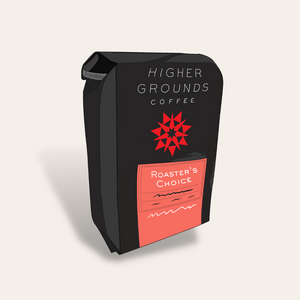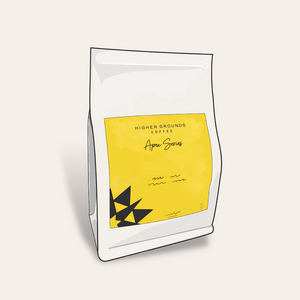This is the first in a series of blogs written by long-term Higher Grounds and On the Ground partner and friend Jose Perez Vasquez, a founder of Maya Vinic coffee cooperative--HG's longest-standing producer partner--and Las Abejas Civil Society in the Mayan Highlands of Chiapas, Mexico. On his third visit to Michigan, in 2016, he collaborated with On the Ground to speak out against climate change, economic oppression and injustices facing the Mayan people while offering his experience as he continues to build resilience via economic and community building alternatives to the conventional neo-liberal model of “development.” Jose is also featured with Chris in the Stone Hut Studios documentary Connected by Coffee and the Fair Trade Chronicles video series.
My name is Jose Perez Vazquez. I am a member and a founder of Maya Vinic, a cooperative of indigenous small-scale coffee and honey producers in Chiapas, MX. In 1992, I helped found the civil society organization Las Abejas (The Bees) in order to defend our human rights because they were being violated. Since that time, I have walked with our people to find solutions peacefully and through dialogue.
In 1997, several members of our organization were massacred in the community of Acteal. The people there at the time of the killings were fasting and praying to ask God that there not be more killed in our communities. I was then commissioned as a representative of Las Abejas in the dialogue and reconciliation between conflicting parties in Chiapas. In this role, I addressed the injustices faced by the indigenous people in the region with a focus on the massacre of Acteal. It was due to these injustices, that we also began to discuss the creation of a cooperative of small-scale coffee and honey producers.
In 2004, I was appointed as chairman of the board of Las Abejas Civil Society, a Mayan community organization founded on the principles of non-violence. In 2007 and 2008 I was elected president of the board of directors of Maya Vinic. As a result of this ongoing struggle for recognition of our basic human rights, I’ve had the opportunity to travel to and learn about many different countries while speaking out about the ongoing low intensity conflict taking place in Chiapas. From 1992 to 2010, I was a coordinator of both Las Abejas and Maya Vinic.
This work and effort has been a volunteer community service to my community for which I received no pay. It is a job that requires much will and patience as well as a lot of hope. I have now temporarily left my community, my family, and my parents to speak out about the regrettable situation of oppression and poverty we live in today. Struggling with marginalization, and trying not to forget my dreams, my challenge is to build a better future, in part, by planting new seeds in hopes they will form roots with connection and direct communication with you in solidarity with our struggle. By that I mean communication between myself as a coffee farmer and those here who are coffee drinkers.
Coffee is the only real source of income that we have in our family, and the economic life of a small coffee farmer has become more and more difficult over time. Now, due to the effects of climate change, we are faced with La Roya (coffee rust) and have lost much of our annual coffee crop the last two years due to the disease. The devastation of many coffee plants has affected the production of our coffees and led to the suffering of thousands of growers in Latin America.
It is not just in our economic lives that we suffer. We also suffer contempt, marginalization, and oblivion as indigenous people in Mexico. We are victims of violence and racial discrimination. We seek to defend our rights and to defend our mother earth. We struggle for our bread every day and we regret seeing this situation in our everyday lives. It is sad to hear the cries and tears for the many deaths and injuries that still continue today in Chiapas and in Mexico. We find it hard to see our governments pursuing and killing innocent people while extending their hands to welcome real criminals whether in Mexico or in some other country. These criminals are often protected and rewarded as exemplified by the protection of the mastermind of the Acteal massacre, who is currently living in the US. He continues to enjoy impunity 18 years later, completely avoiding criminal responsibility for this cruel and horrible slaughter.
But, we remain hopeful because of the real solidarity between our farmers and consumers of our coffees. We wholeheartedly support On the Ground water projects in Chiapas and the renovation of our coffee farms supported by Cooperative Coffees and Root Capital. Together we are improving the lives of the neediest populations of Chiapas--especially within our cooperative Maya Vinic and our organization, Las Abejas.
I ask you to join us with an open heart and mind as we struggle for a better world. You can do this by extending your hand, by making a monetary donation to On the Ground, or through the purchase of a cup of our coffee. However you feel you can open your hearts as brothers and sisters and as friends, please join us in this journey.



